With incredible battery life and hard-to-beat value, the Coros Dura is a solid little computer yet I’ll be sticking with Garmin - here’s why
The Dura is a sleek GPS cycling computer with impressive battery life and performance, but it falls short when riding off the beaten path.
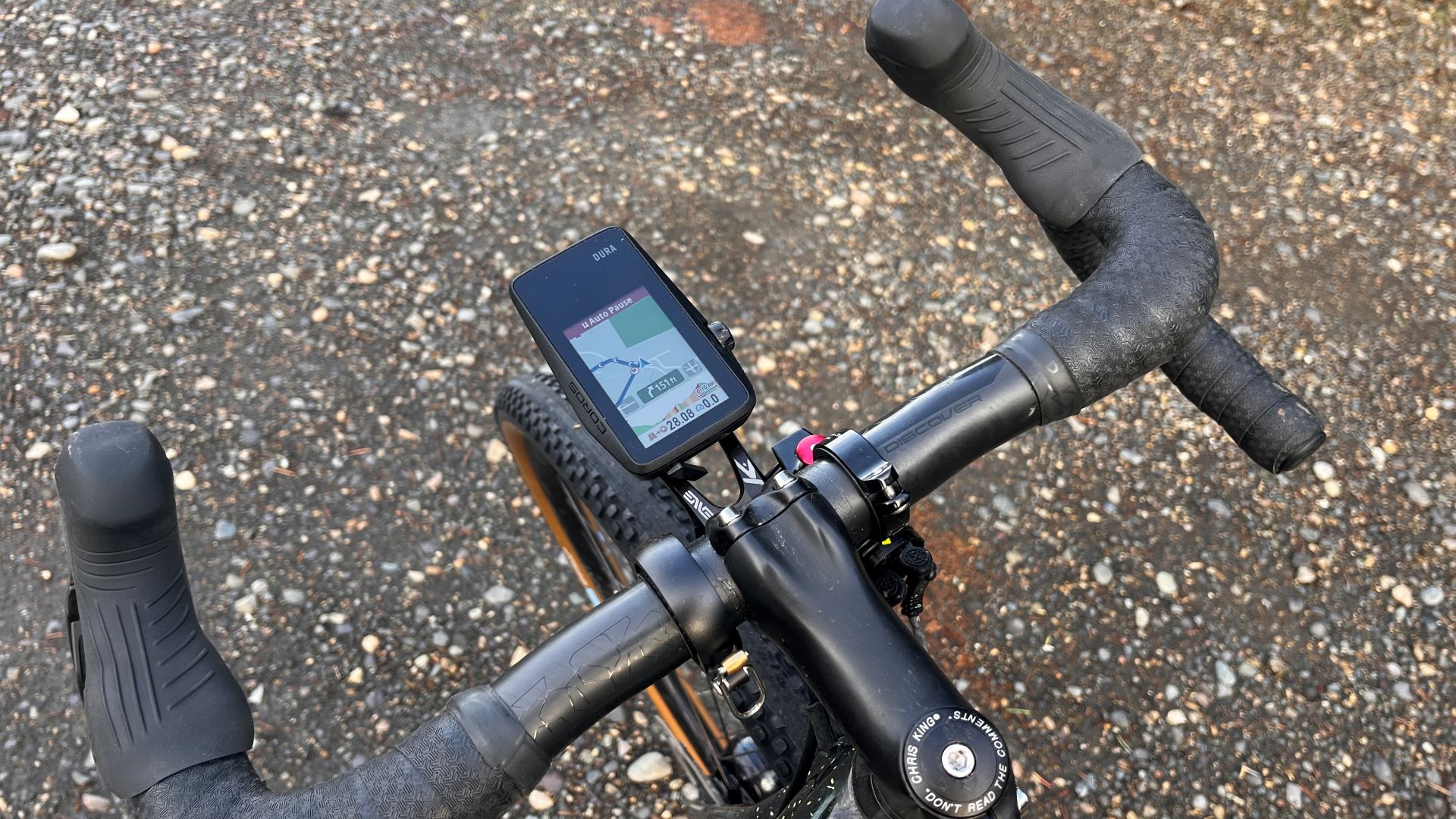
For the $249/£249 price tag, the Coros Dura is tough to beat. If you’re looking for a GPS cycling computer with all the basic features in a sleek, lightweight package that requires little charging, this deserves a look. However, Dura’s features may be too basic to convince Garmin or Wahoo users to jump ship – unless, of course, they’re going on multi-day bike adventures. Still, adventurous cyclists, be cautioned. The Dura does not have on-device rerouting and relies on cell signal and the companion app to reroute.
-
+
Best-in-class battery life
-
+
User-friendly interface and app
-
+
Sleek, lightweight design
-
+
Rugged, dirt-proof build
-
+
Speedy start-up
-
+
Quick to locate GPS
-
+
Speedy syncing
-
+
Accessory connectivity
-
+
Good value
-
-
Low-quality mapping
-
-
No on-device rerouting
-
-
A lot of reliance on the companion app
-
-
Loud beeping
-
-
Slow-to-respond touch screen
You can trust Cycling Weekly.
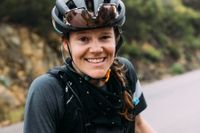
Last year, GPS sports watch manufacturer Coros burst onto the cycling market with its first cycling computer. First spotted by us at Unbound Gravel, the Coros Dura made a splash with its astonishing 120+ hour battery life and attractive $250 price tag. Could this be the long-awaited competitor to Garmin and Wahoo?
After seven months of using the Dura, we’re ready to make a verdict.
Who’s Coros
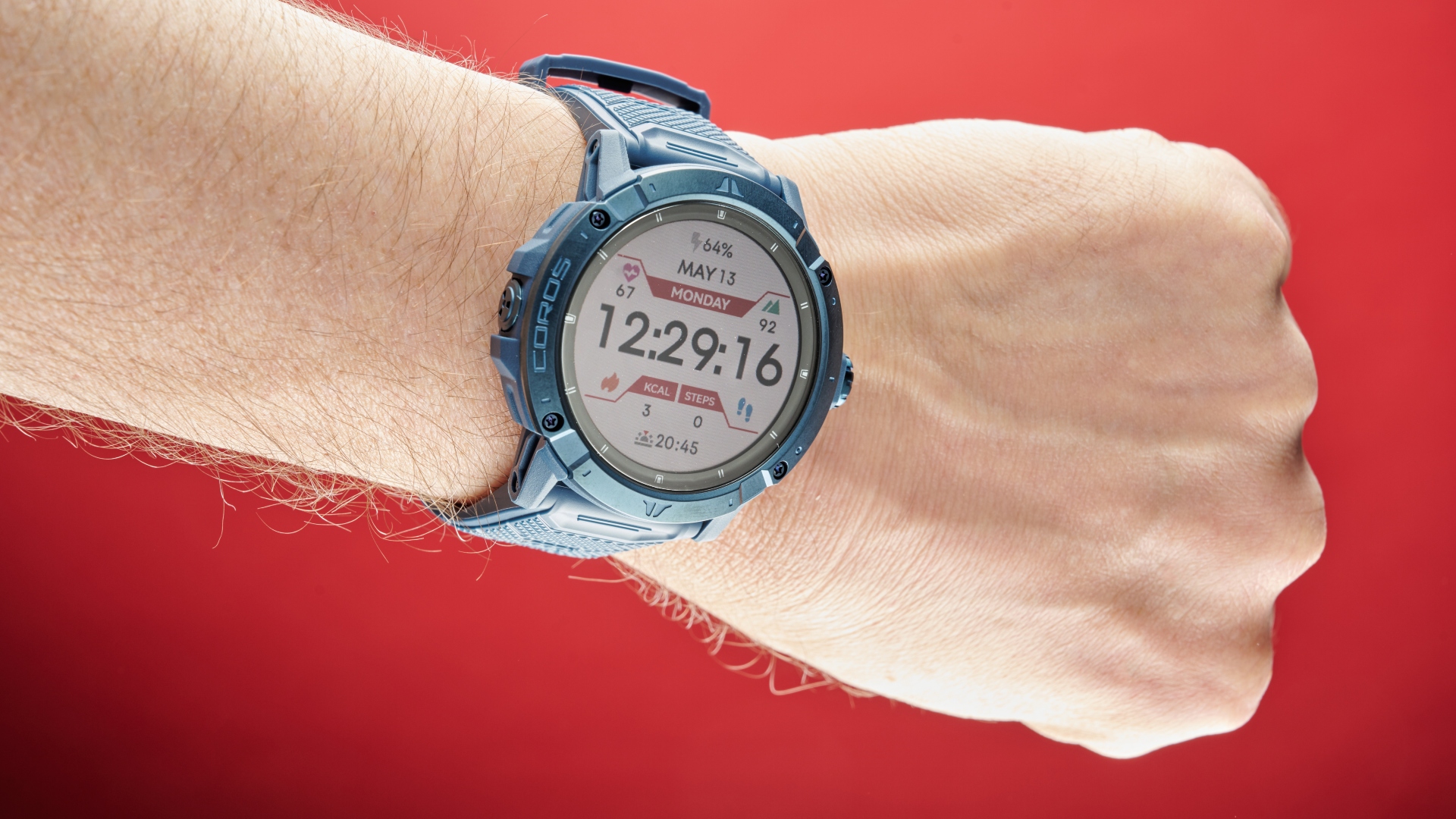
Founded in 2016, Coros is a relatively new player in the sports technology industry, but it was quick to make a name for itself with its high-performance sports watches. Endurance athletes embraced the brand, drawn to the products’ lightweight yet robust design, advanced features, powerful training tools and exceptional battery life.
Coros’ growing product lines of wearables include various watches, a heart rate monitor (which I personally use and highly recommend), a range of workout sensors, and its first and possibly one of the best bike computers. As Coros expands its product range, it’s gradually creating a comprehensive ecosystem in which all the products work seamlessly together – not unlike the big players, Garmin or Wahoo.
"We have often been asked when we would create a bike computer. While we have always been passionate about cycling, we didn't want to develop a new head unit without creating something different," the brand states.
Meet the Dura
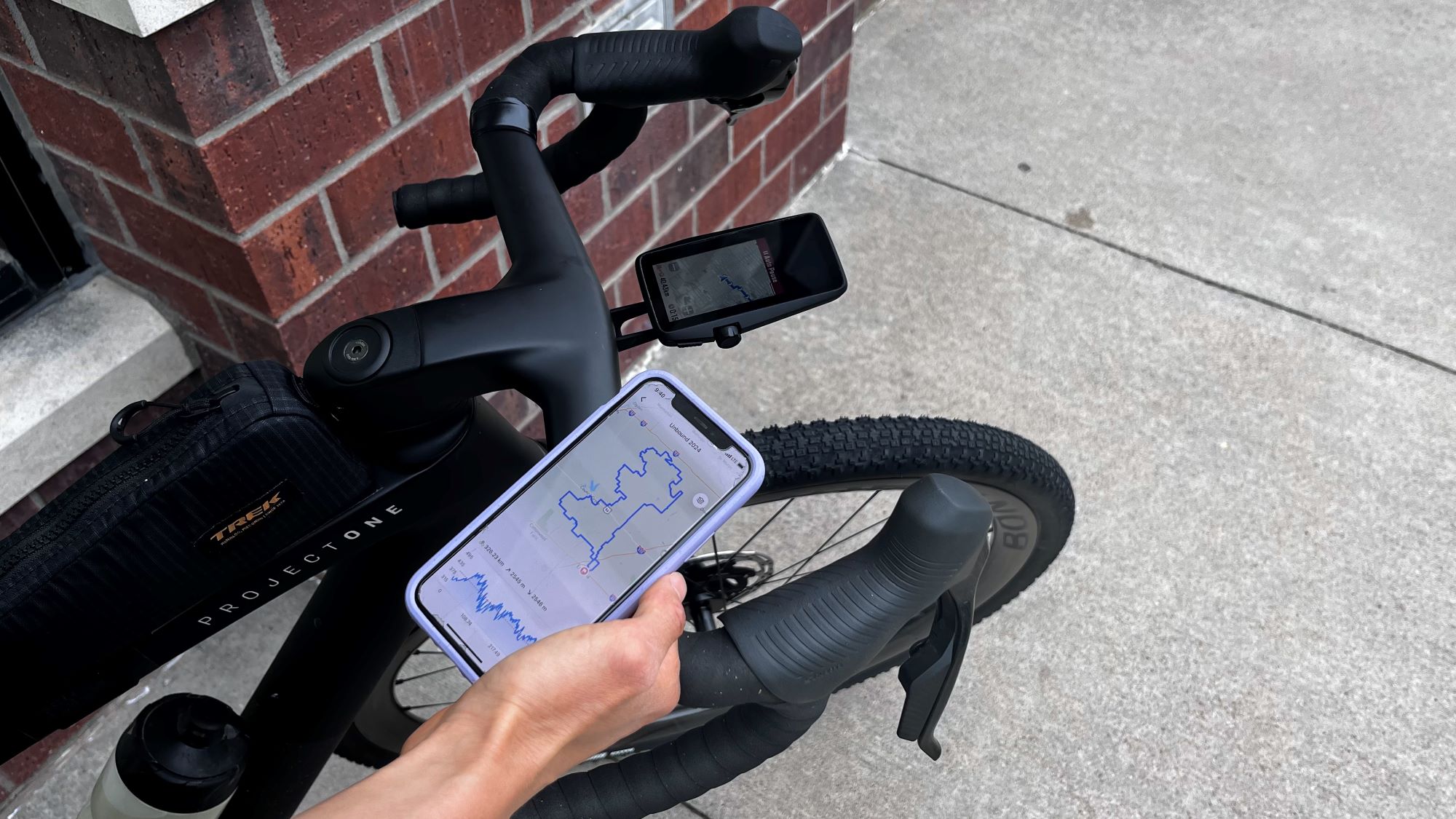
The Coros Dura spotted at Unbound Gravel
With the Dura, Coros aimed to supply athletes with "the ultimate cycling adventure and training companion" and has specifically set out to serve gravel racers, FKT chasers, brevet riders and ultra-long-distance adventurers.
The unit is sleek yet sturdy, the battery life is best-in-class, it sports all the basics one would expect from a GPS cycling computer, and all Coros consumers get access to the brand’s robust training platform.
The latest race content, interviews, features, reviews and expert buying guides, direct to your inbox!
"Simplicity is the guiding principle for the new bike computer. Coros has prioritised rider experience by addressing multiple pain points," the brand states. "From seemingly endless battery life to using Google Maps for navigation, to lightning-fast upload speeds and much more."
Overview
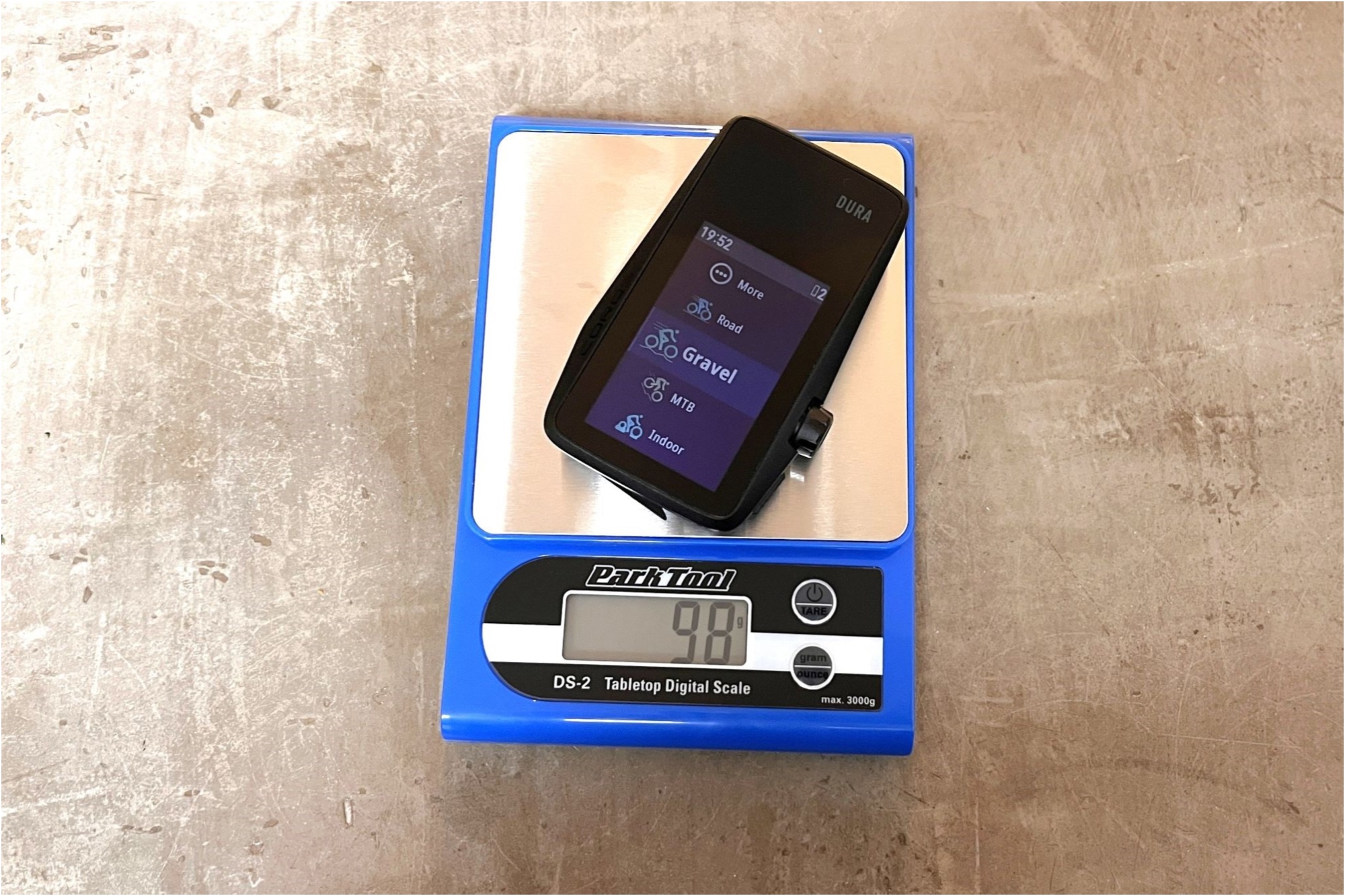
- Product name: COROS DURA
- Size: 99.5 x 60.8 x 15.7mm (3.92 x 2.39 x 0.62 inches)
- Weight: 98g head unit, 44g mount
- Mount: standard quater-turn mount
- Sleek, aerodynamic design
- Price: $249 / £249 / EUR 289
- Battery size: 960 mAh battery
- Battery life: 120 hours excluding solar (70 GPS hours in Dual-Frequency mode)
- Solar add: 1 hour of direct sunlight adds up to 2 hours of extra ride time
- Battery charges fully in as little as 2 hours
- Screen: 2.7 inch MIP color touch screen with 240 x 400 pixel resolution
- Additional operation via a dial on the side and Back/Lap button
What is can do
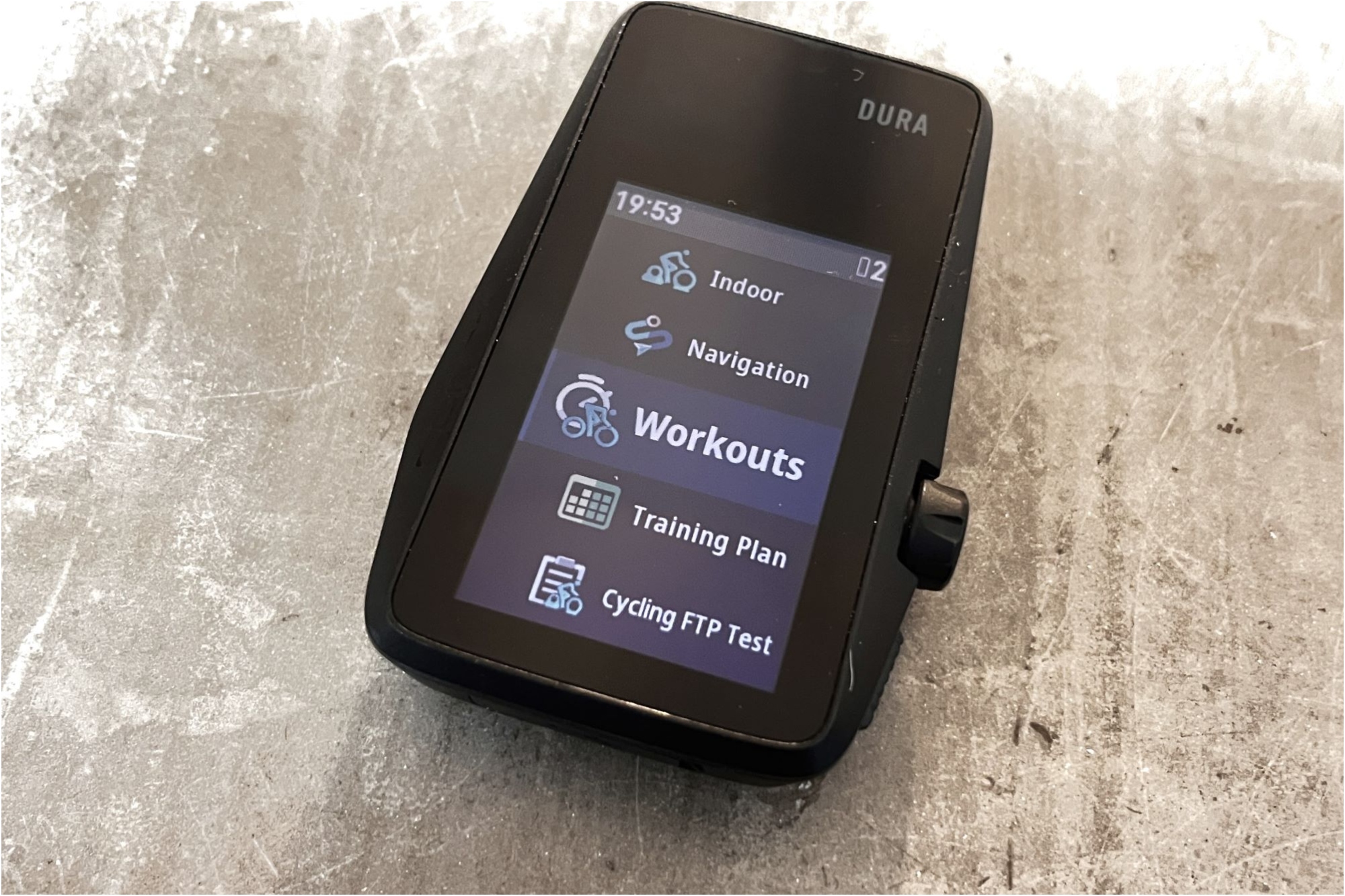
- Battery life: 120 hours excluding solar (70 GPS hours in Dual-Frequency mode)
- Solar add: 1 hour of direct sunlight adds up to 2 hours of extra ride time
- Battery charges fully in as little as 2 hours
- Youch screen and dial/button operation
- Onboard sensors: barometric altimeter, accelerometer, gyroscope, compass, temperature sensor
- Storage capacity: 32GB
- Working temp: -20 C (-4F) to 60C (140F)
- Adaptive backlight
- Bluetooth/ANT+/WiFi connectivity
- Dual-Frequency GPS (L1+L5)
- Auto GPS mode: GPS, GLONASS, GALILEO, Beidou, QZSS
- IP67 water resistance
- Turn by Turn navigation
- Real-time elevation climb feature
- Bike alarm
- Live tracking
- Strava segments
- Notifications
- Third-party app syncing
- In-app route builder
- App-based rerouting
- Guided workouts
- Free workouts and training plans available in app and desktop platform
- Together with a COROS watch, the ecosystem offers a 24/7 profile of your fitness and training status incl. Sleep, HRV and Daily Stress data
What it can't do (yet)
- Detailed mapping i.e. Street names or POI on device maps
- Weather, Wind data
- On-device rerouting
Long-term ride review
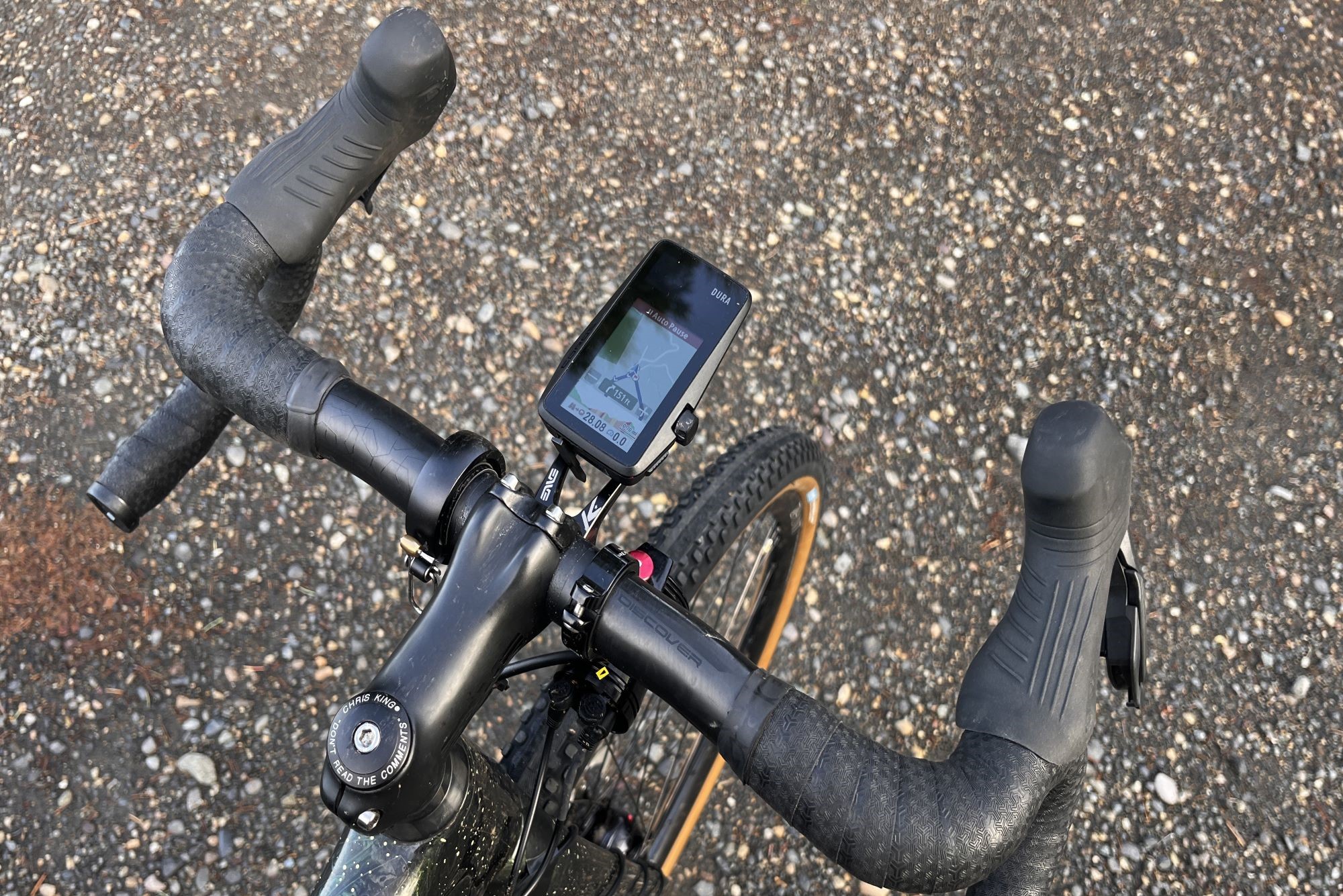
When Cycling Weekly received its pre-release units in June 2024, Coros promised frequent software updates, and the brand has certainly delivered. Coros has consistently rolled out updates that have significantly enhanced the Dura. Key improvements include the Real-Time Elevation Profile (essentially a “climb” feature), navigational improvements, Strava Live Segments, and more.
While many companies tout software updates, few follow through with the consistency as Coros has. The company has made a clear effort to keep the Dura evolving, so any critiques you read here today could very well be addressed six months from now, which is actually a great selling point. Already, many of my initial gripes about the unit have been addressed, including compatibility with Ride with GPS, turn-by-turn navigation and a real-time climbing feature.
For those who haven’t seen the Dura in person yet, the unit is pleasantly sleek and light for a computer boasting such a big battery life. For comparison, the Dura is smaller than a Garmin Edge 1040 and more similar to the Hammerhead Karoo but thinner. It certainly bucks the trend of tablet-size units like the latest Wahoo.
A solar panel makes up about a third of the front screen with a 2.7-inch MIP colour touchscreen below it. For those who prefer tactile controls, the side of the device includes a button and a large dial. The dial on the side of the unit is a nod to the brand's watch heritage. In wristwatches, this knob is called a crown and traditionally had the essential function of setting the time and winding the watch. The 'crown' on the GPS cycling computer allows you to navigate the unit's settings and pages.
There is always a learning curve when switching to a new ecosystem of products, and I recommend users take some time getting to know the Dura and the companion app, especially. A lot of the device's settings and customisations are accessed via the app and can't be accessed via the unit itself.
Battery Life
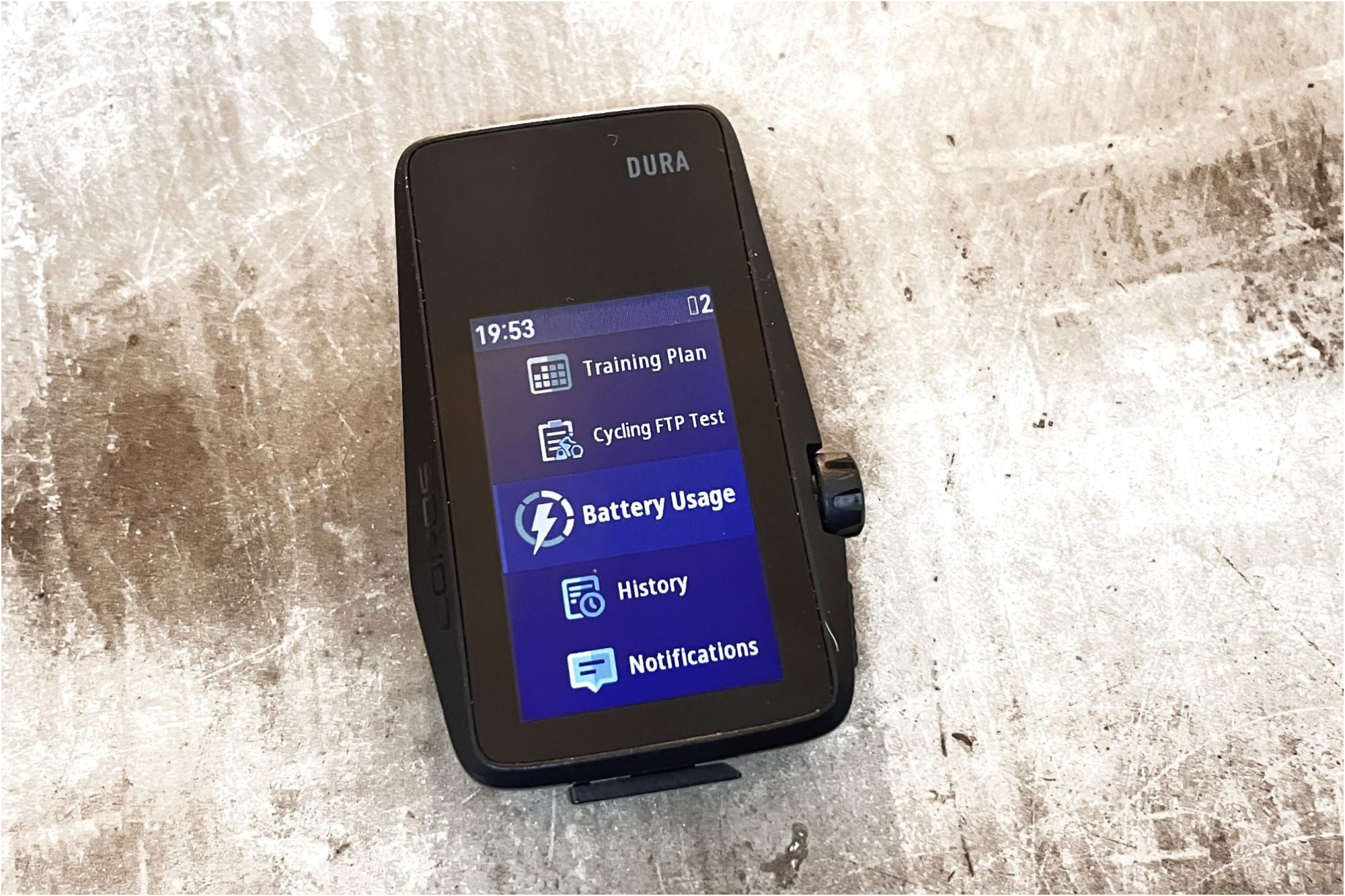
The battery life is every bit as impressive as its claims. None of the other GPS cycling computers currently on the market come even close.
Like Garmin's solar products, the battery operates independently from the solar panels – the solar panels merely extend the battery life rather than recharge the battery. Coros claims that an hour of direct sunlight can add up to two hours of ride time.
Previously, I would never set out for a ride with my Garmin or Wahoo computer at 5% battery life, but with the Dura, 5% gives you a full day of riding.
Even with several sensors paired, navigation running and the backlight always on, I’ve gotten at least 100 riding hours out of the unit.
The Screen & Activity Pages
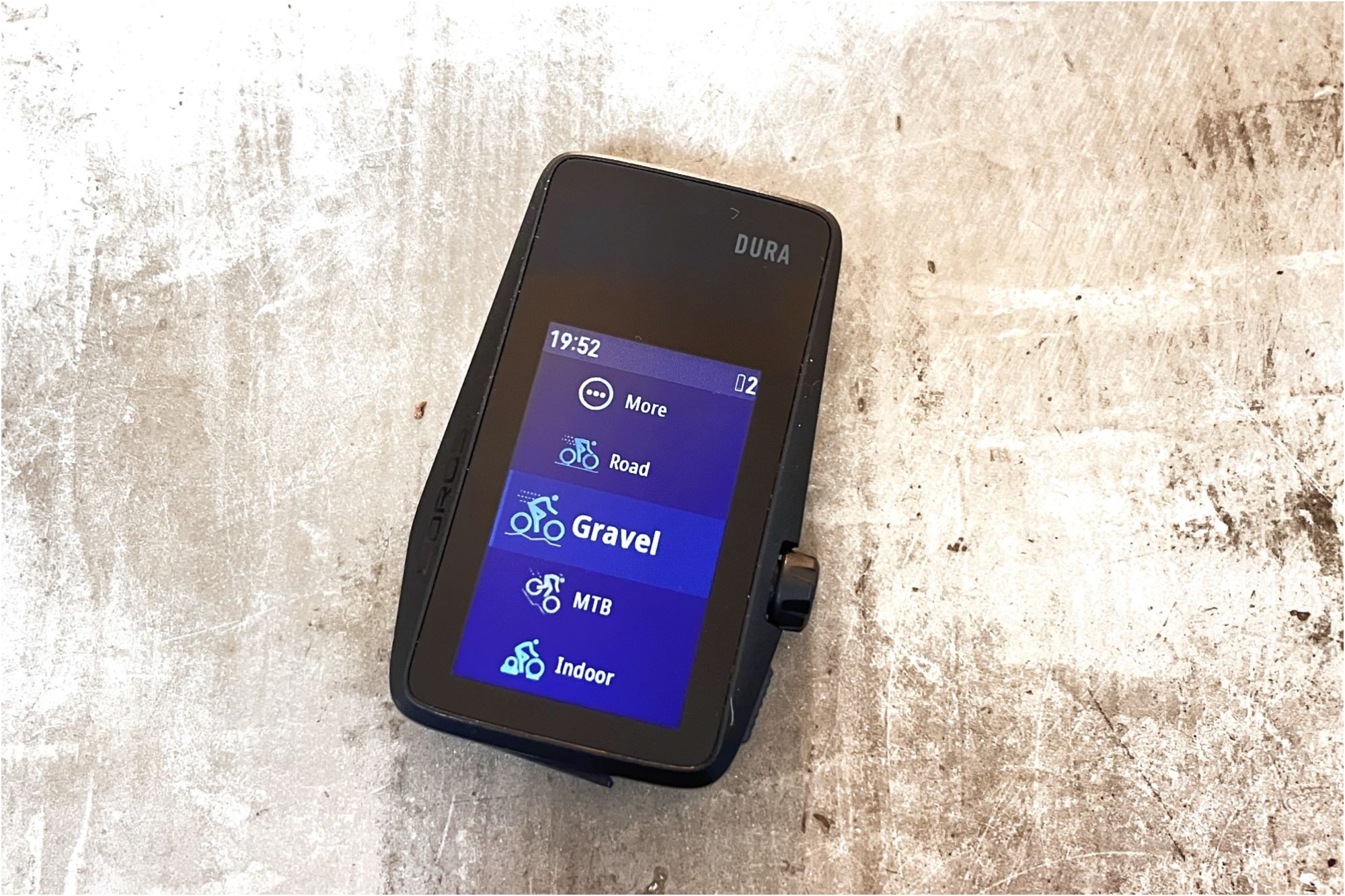
The Dura powers up very quickly. And, when not in use, it enters sleep mode instead of shutting down completely, enabling it to blink on instantly when needed—much like a smartphone.
The Dura sports a decently-sized colourful display –though lacking in both size and graphics compared to, say, the latest Hammerhead Karoo. It’s basic yet perfectly legible.
The Dura supports several activity profiles (i.e. road, mountain, gravel, and indoor), guided workouts, and customisable pages, which are easy to set up via the app. Each page is customisable with anywhere from two to nine data fields, per your liking.
You can toggle through the menus using the touch screen or the dial. I find the dial a tad sensitive, but conversely, the touch screen can be agonisingly slow at times – especially when you’re trying to zoom in or out on the map screen.
The unit’s menu is pretty basic, but that’s not a bad thing. Some computers these days are so overly feature-packed that it’s easy to get lost. Moreover, the majority of users will never even touch the advanced features. With the Dura, the core functionalities like your routes, training pages and accessories are easily accessible.
Accessories:
The Dura will allow you to connect an impressive 16 different devices via Bluetooth or ANT+, which is more than the average consumer will need. This may be your heart rate monitor, power meter, electronic groupset or radar. The pairing process is done with the device itself and is quick and easy. And when you pair your Coros watch, it will automatically pull your heart rate data from the watch so you don’t have to wear an additional heart rate monitor.
The Dura allows button control, meaning that you can toggle through the activity pages using your electronic shifter’s bonus button. But for me, the main reason I pair my electronic groupsets with a cycling computer is to be alerted when my batteries are running low. With other computers, a clear alert will pop up to notify me of any low batteries; however, the Dura has failed to notify me. I can, however, look up the battery status via the accessories page.
Training with the Dura

Coros products are complemented by a robust training platform, which is accessible via the mobile app and the desktop Training Hub. It is free for device users and enables athletes to analyse performance metrics, communicate with a coach, create personalised workouts and training plans, and more. It's like having TrainingPeaks included with your watch or cycling computer purchase.
The Dura can guide you through structured workouts, which can be imported via the App. You can build your own workouts in the Coros app or import them from a compatible third-party training app like TrainingPeaks, Strava or Intervals.icu. You can even do a guided indoor FTP test straight from the device without needing to import a workout.
Throughout the workout, the computer will show unique charts visualising your workout data like power, speed, heart and cadence data.
Over time, the Dura will calculate and update your training zones, training load and recovery time. I’ve found that the data is most accurate when your devices are all in the same ecosystem, drawing in data from both a wearable (watch) and computer-based activity.
Navigation
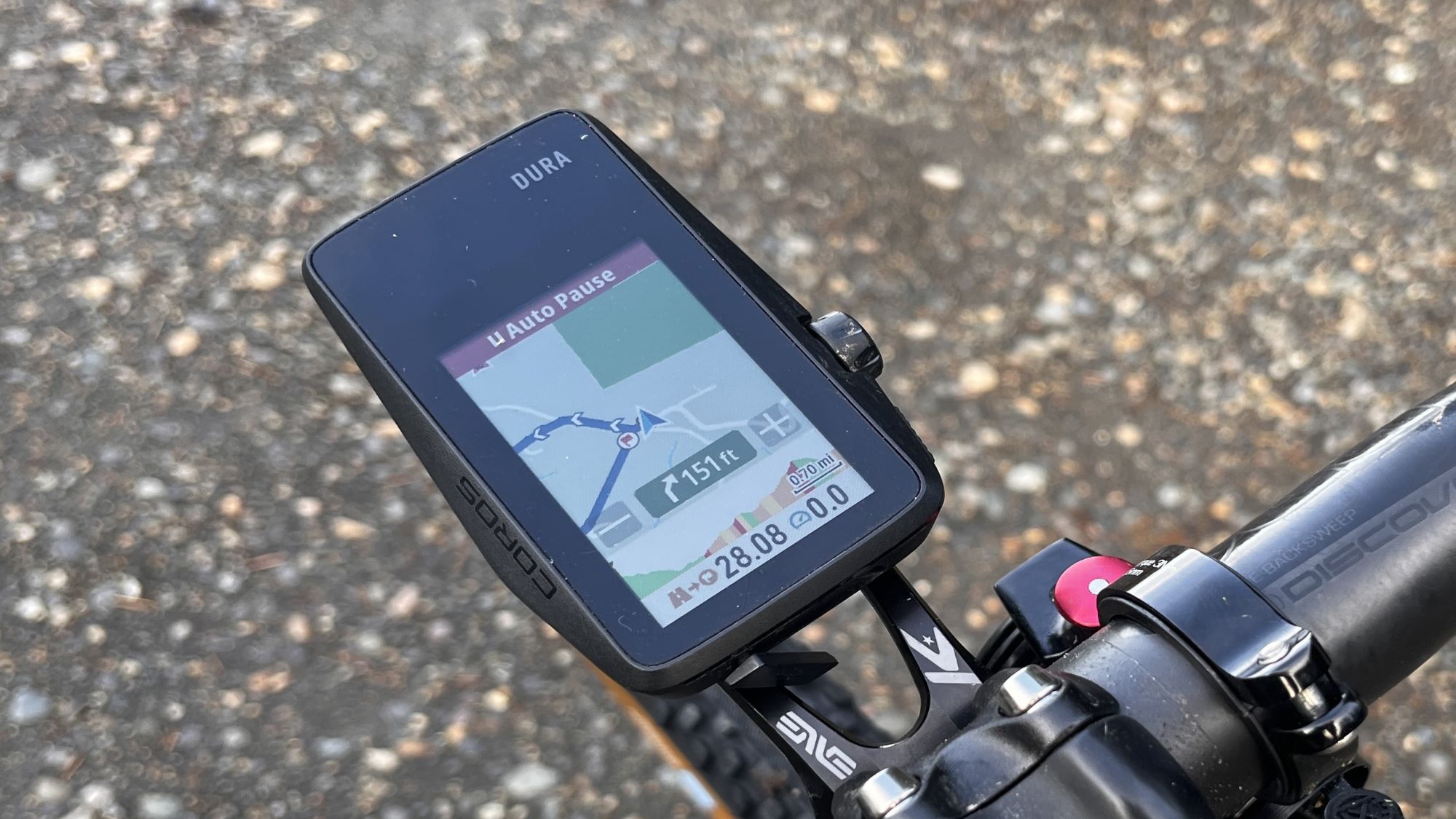
Navigation is the sticky point for me when it comes to the Dura. Sure, it supports turn-by-turn navigation and will get you to where you need to go –most of the time– but it’s very basic. The device’s map is a plain network of lines. No street names, no Points of Interest, no distinction between a street, a gravel path or a dead-end alleyway.
And should you misjudge, turning right after 145 feet instead of the asked-for 151 feet, the Dura takes too long to take note, at which point you’ll probably have to reroute and that is where the Dura lost me as a user.
For a product targeted at the more adventurous of cyclists, my biggest concern lies in its rerouting abilities or, rather, its limitations.
The Dura is one of the few computers in its class that does not have on-device rerouting abilities. Instead, it relies on the app and cellular connection.
Coros claims, "If you change your mind mid-ride, search for new destinations on your phone or draw a new route, Coros Dura will sync the updated route in seconds."
This means that at any time, you must have your smartphone on, the Coros app connected to your device and running in the background, and be within cell phone reception.
This reliance on the phone app to route or re-route on the fly may work in a city, but it falls short in the remote settings most gravel and adventure cyclists find themselves in.
"The thinking here is that *most* of the time when you need this kind of rerouting assistance, you're in a more dense urban environment with multiple routes to the same destination (where you're likely to have cellular coverage)," Coros told Cycling Weekly. "Conversely, when you're out in the backcountry or in more rural areas where you might not have cellular coverage, it's usually pretty simple to find your way back on route by looking at the map if you make a wrong turn."
This has not worked for me. More than once, I have found myself in a remote area, far away from any civilisation, on a gravel road that had some obstruction –a landslide, active logging or a dead-end– that Google Maps was not aware of. With no cellphone reception and nothing but some identical-looking lines on the device’s basic map, it was impossible to determine which trail was going to take me where I needed to go.
Even in the land of reception, I don’t fully trust the rerouting ability. Coros' navigation is powered by Google Maps rather than OSM Cycle, which prioritises paved, known and well-trafficked roads. This information tends to be car-centric and not always safe for cyclists. I discovered this when, in testing, a reroute sent me up a four-lane, high-speed thoroughfare without so much as a shoulder instead of the quiet neighbourhood streets nearby.
The good news is that most users will never run into any rerouting problems – either because you won’t need to deviate from your course because you’re following a tried-and-true route, you know your riding area well, or you’re in a populated area with good cell signal. However, the lack of on-device rerouting is a deal breaker for me. This is frustrating because the battery life is exactly why the Coros would be such a great gravel and endurance cycling computer. But when exploring the groads less travelled, I just don’t trust the device enough to rely on it.
Value & Verdict:
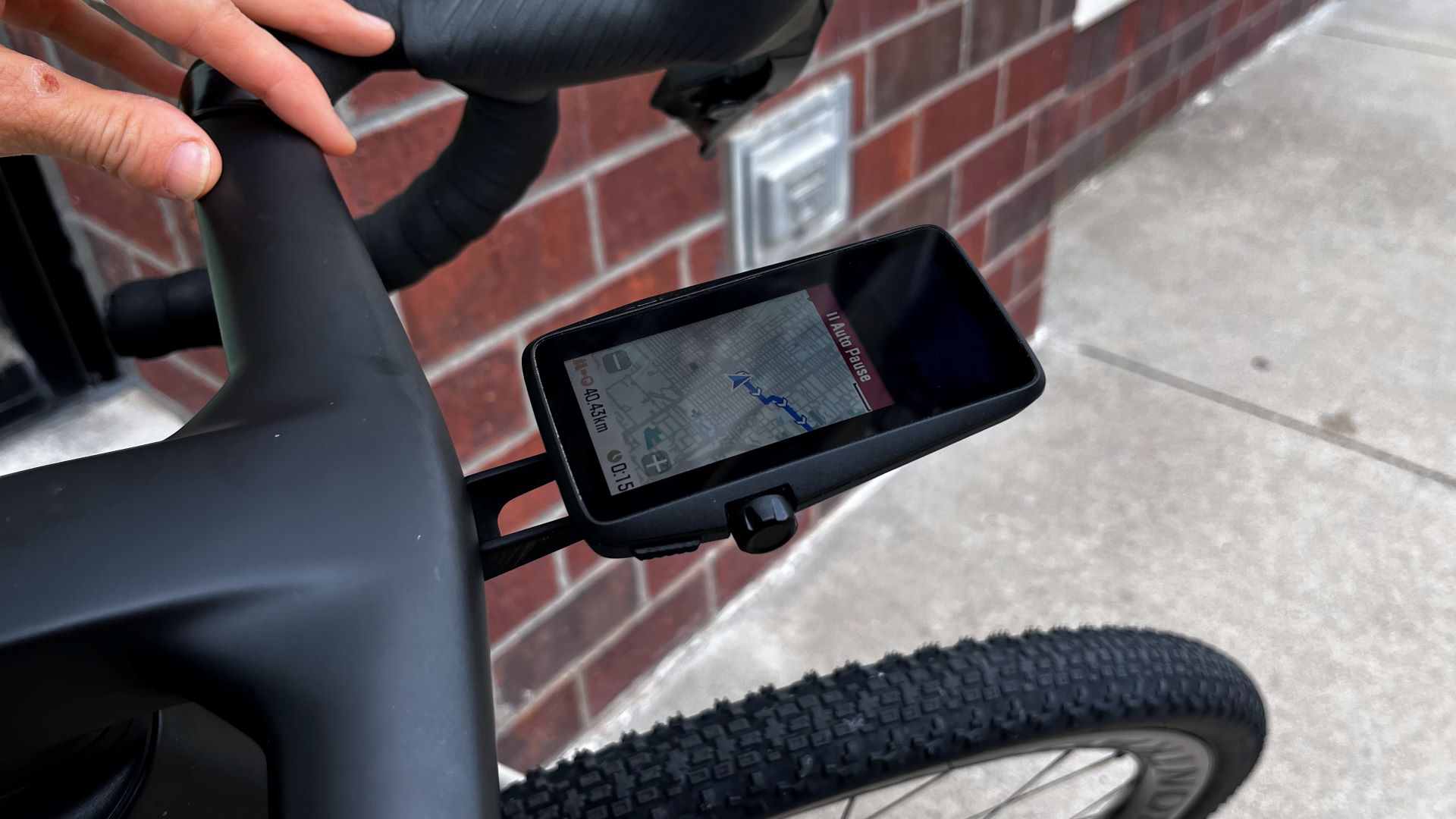
Garmin and Wahoo have long dominated the GPS cycling computer space, so the emergence of a competitor is a welcome development. For the $249/£249 price tag, the Coros Dura is tough to beat. If you’re looking for a GPS cycling computer with all the basic features in a sleek, lightweight package that requires little charging, this could very well be it.
As of yet, the Dura’s features may be too basic to convince current Garmin or Wahoo users to jump ship – unless, of course, they’re wanting the multi-day battery life. Still, if you don't need any advanced features, I'd maybe even pick the Dura over the similarly priced Wahoo Elemnt Bolt V2. The Dura has a bigger screen, a more user-friendly interface and better battery life. Coros’ training platform and frequent software updates add value as well.
The currently slow-to-respond touchscreen and low-quality mapping are small pain points that Coros may address in its next software updates. My main drawback is the Dura’s limited navigation and rerouting abilities. Without on-device rerouting, I would caution the more adventurous cyclists who often find themselves off the beaten path.
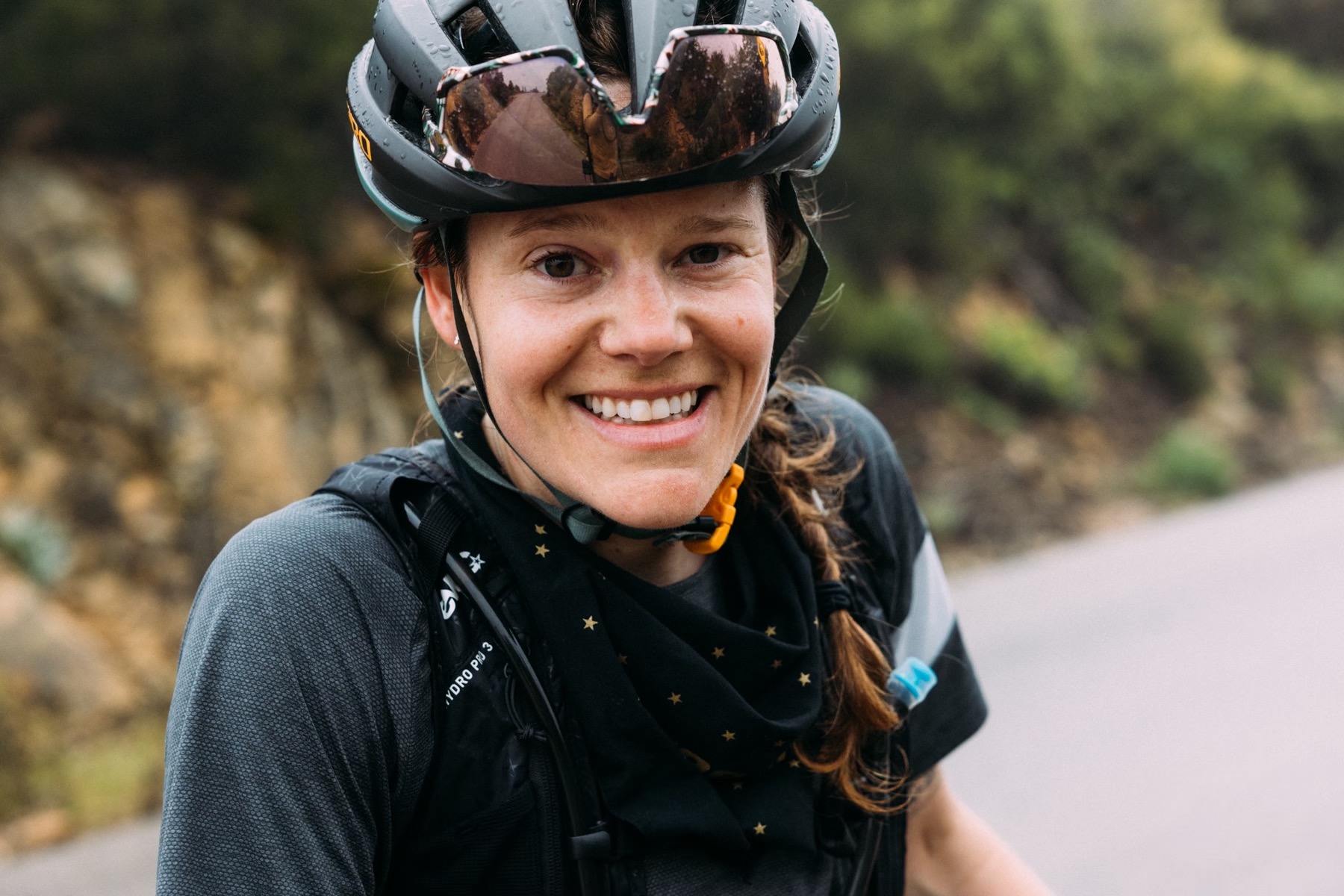
Cycling Weekly's North American Editor, Anne-Marije Rook is old school. She holds a degree in journalism and started out as a newspaper reporter — in print! She can even be seen bringing a pen and notepad to the press conference.
Originally from the Netherlands, she grew up a bike commuter and didn't find bike racing until her early twenties when living in Seattle, Washington. Strengthened by the many miles spent darting around Seattle's hilly streets on a steel single speed, Rook's progression in the sport was a quick one. As she competed at the elite level, her journalism career followed, and soon, she became a full-time cycling journalist. She's now been a journalist for two decades, including 12 years in cycling.
You must confirm your public display name before commenting
Please logout and then login again, you will then be prompted to enter your display name.